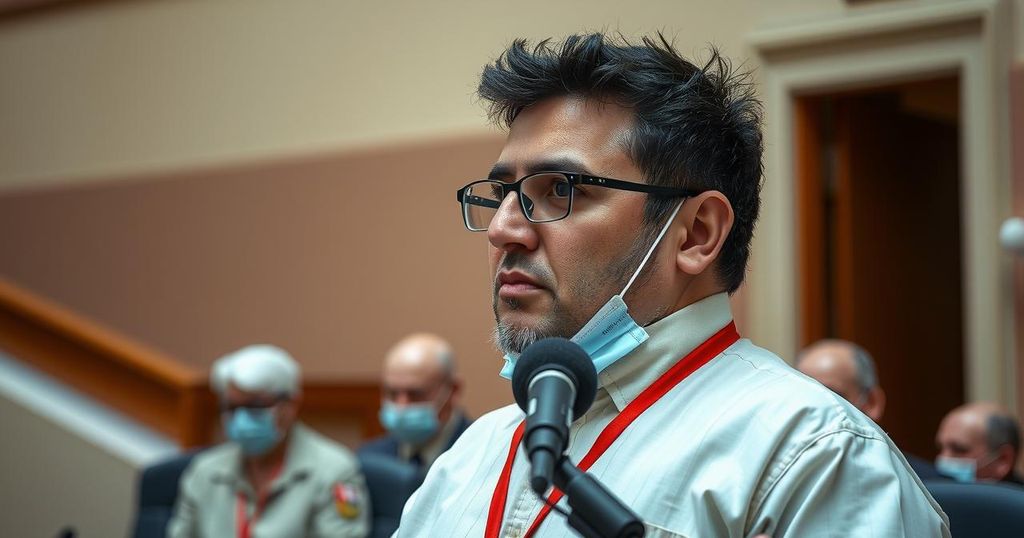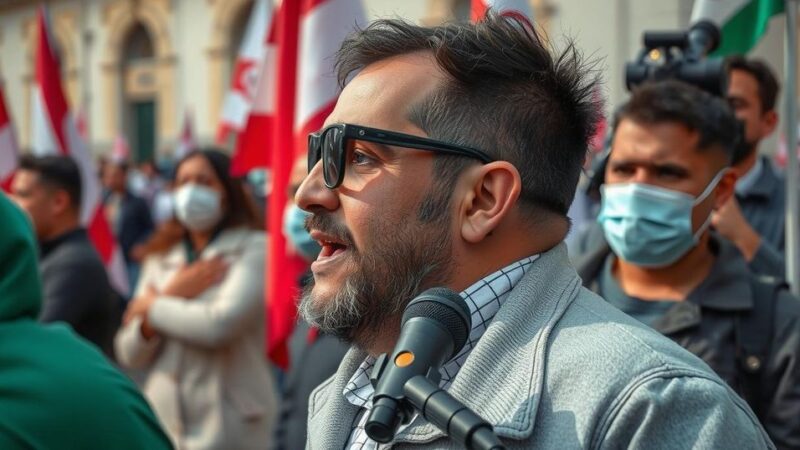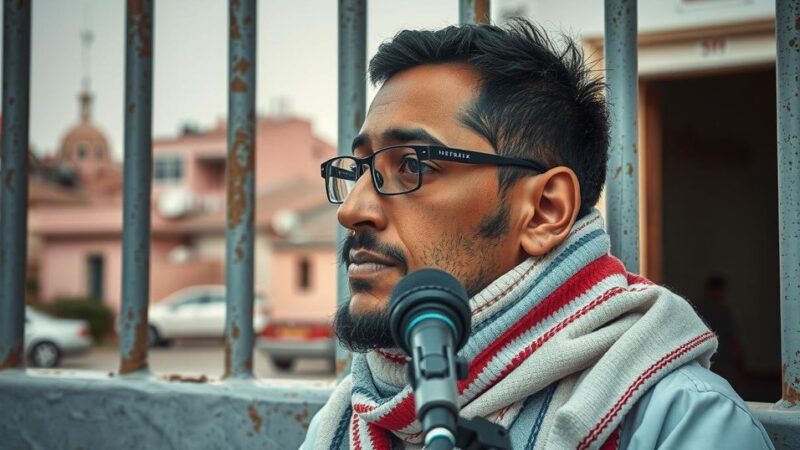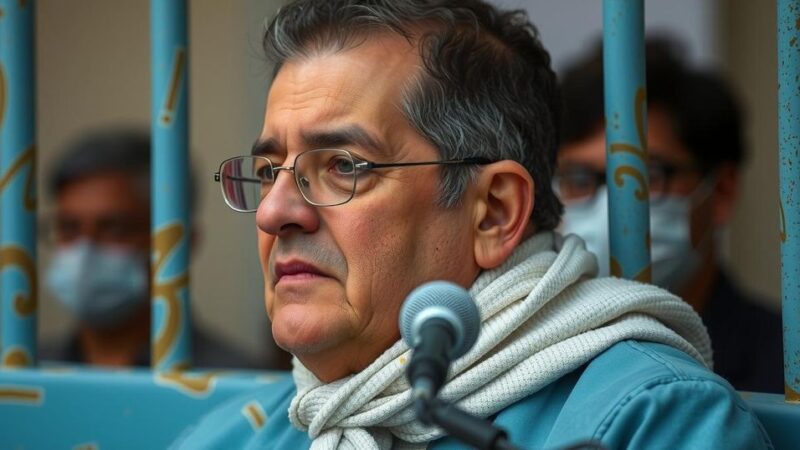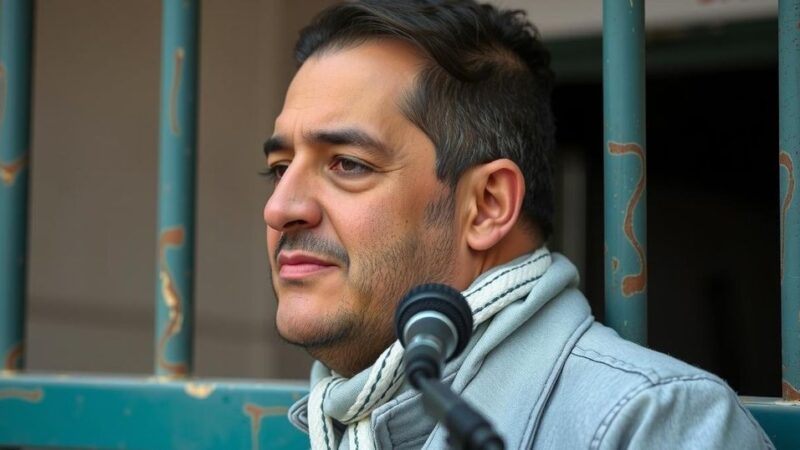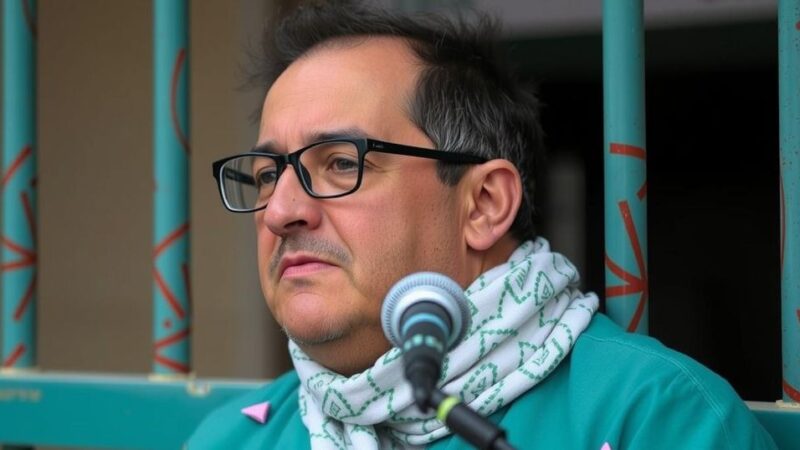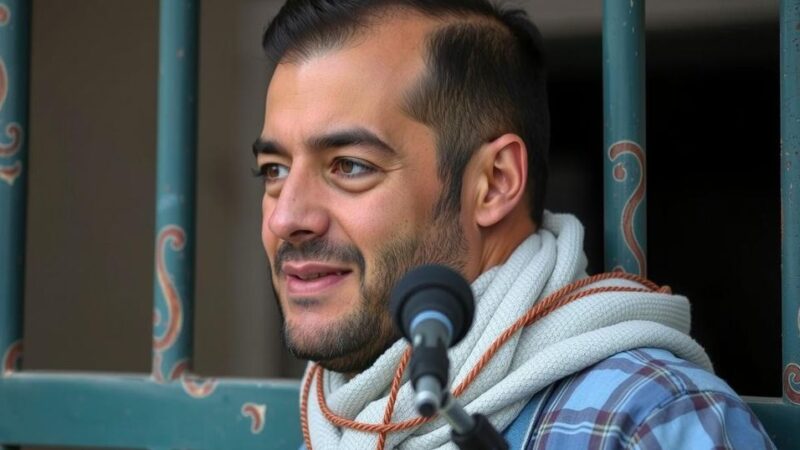Said Ait Mahdi, a Moroccan activist, was sentenced to three months in prison for his role in protests criticizing the government’s response to a major earthquake that caused widespread devastation and loss of life in September 2023. His conviction has been condemned by human rights groups as politically motivated, highlighting ongoing tensions over civil liberties in Morocco.
On Monday, Said Ait Mahdi, a prominent Moroccan activist, was sentenced to three months in prison along with a monetary fine exceeding $1,000, following his role in protests critical of the government’s response to a devastating earthquake in September 2023. Ait Mahdi, who leads a significant activist group in the Al Haouz region, faced various charges, including defamation and inciting unauthorized demonstrations. The earthquake claimed nearly 3,000 lives and devastated numerous communities, leaving many residents in inadequate conditions. His trial has drawn condemnation from human rights organizations, who denounce the charges as politically motivated and as a suppression of dissent.
This verdict marks a significant moment in Morocco’s ongoing struggle over civil liberties and governmental accountability. Protests have erupted across the country, particularly in regions severely affected by the earthquake, following accusations against local officials of mismanaging recovery efforts. Ait Mahdi is noted as the first activist to face such a penalty related to these protests, highlighting the government’s intent to quell rising dissent regarding its disaster response.
The September quake profoundly impacted disadvantaged areas already under scrutiny for lack of infrastructure. Government estimates indicate that over 60,000 homes and 585 schools were severely damaged. Despite plans for extensive financial support amounting to over $11.5 billion directed at recovery and rebuilding efforts in the affected regions, many locals continue to voice frustrations over the sluggish pace of reconstruction. Activist groups, including the Civil Coalition of the Mountain, have vocalized these concerns in larger demonstrations, including recent protests in the capital, Rabat.
Ait Mahdi’s lawyer, Isaac Charia, remarked that while defendants in similar cases often face year-long sentences, the three-month verdict was less severe than expected. Three other activists involved in related cases were acquitted on the same day, illustrating the contentious nature of these legal proceedings. Human rights advocates have characterized Ait Mahdi’s arrest as indicative of a broader pattern of repression against those advocating for earthquake recovery and civil rights in Morocco.
This case exemplifies the tension between governmental authority and grassroots activism amid a backdrop of natural disaster and social injustice, amplifying the voices of marginalized communities demanding accountability and support from their leaders. The ramifications of Ait Mahdi’s imprisonment may resonate throughout the region, potentially galvanizing further protests and calls for systemic reforms within Moroccan society.
In September 2023, Morocco experienced a catastrophic earthquake with a magnitude of 6.8, resulting in nearly 3,000 casualties. The disaster profoundly affected the Al Haouz region, leading to significant destruction of homes, schools, and infrastructure, leaving many residents in dire conditions. Subsequently, there has been widespread public outcry over the perceived inefficacy and mismanagement by government officials in responding to the crisis. Activism has surged, particularly among local organizations advocating for the rights and needs of the earthquake survivors. The case against Said Ait Mahdi, a notable figure in the activism landscape, highlights ongoing tensions related to civil liberties in the country and the government’s stance towards dissent.
The sentencing of Said Ait Mahdi underscores the ongoing struggle for civil liberties in Morocco, particularly in the wake of the devastating earthquake that affected countless lives. His case has rallied human rights advocates, showcasing the urgent need for accountability regarding governmental disaster response and the broader implications on social justice issues. As protesters continue to agitate for their rights and a more substantial recovery effort, the situation in Morocco reflects a critical juncture for activism and the protection of citizen voices within the political landscape.
Original Source: www.thecanadianpressnews.ca

